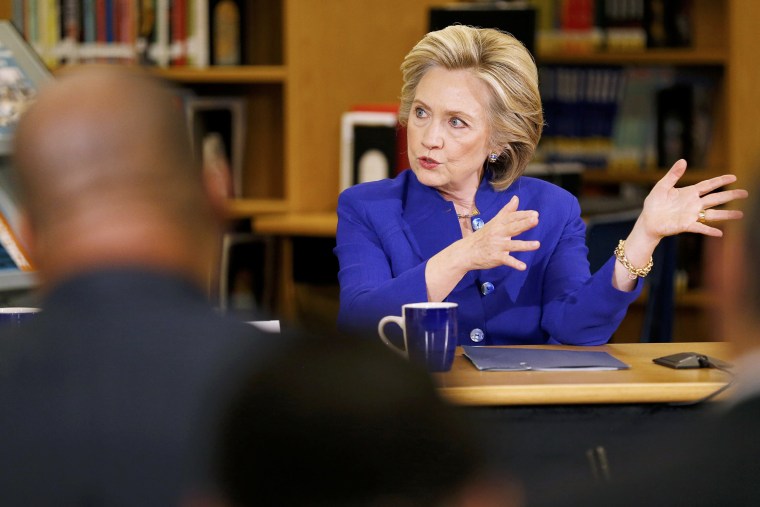Hillary Clinton's remarks on immigration policy this week left quite a few people surprised. For reform proponents and other liberal activists, the Democratic candidate's vision was far more ambitious than anyone expected. For pundits expecting Clinton to run to the middle without a credible primary rival, her increasingly progressive platform is far from predictions.
And then there are the Republicans hoping to run against her, some of whom weren't sure what to say at all. The Washington Post reports today:
Hillary Rodham Clinton's fighting words on immigration this week, designed in part to provoke Republicans into a reactionary counterattack, instead drew an unusual early response from several top-tier GOP presidential candidates: silence. [...] The relatively subdued GOP reaction illustrated a dilemma for a Republican Party still wrestling with the hot-button issue of immigration three years after Obama routed Mitt Romney behind overwhelming support from Latinos and Asian Americans.
Some of the Republican contenders, most notably Wisconsin Gov. Scott Walker, blasted Clinton's position, but some of the top GOP contenders who've been heavily engaged in the immigration debate -- former Gov. Jeb Bush and Sen. Marco Rubio, I'm looking in your direction -- had literally nothing to say.
It's worth appreciating why.
The Washington Post's Greg Sargent explained that the Democratic frontrunner has created an awkward problem for leading GOP contenders like Bush and Rubio: "They don't want to condemn Clinton's remarks too vehemently, because they do want to preserve the chance of performing significantly better among Latinos than Mitt Romney did (which both can credibly claim they may succeed in doing). Yet failing to condemn Clinton vehemently enough risks angering the conservatives they need in the GOP primary."
Fergus Cullen, a former chairman of the Republican Party in New Hampshire, explained this in an even more colorful way: his party's intransigence on the issue on Capitol Hill "has created an obvious opportunity for Hillary to rip off our arms and beat us with the bloody ends. She's expertly exploiting our party's internal problems."
Though Clinton's unlikely to become violent, Cullen raises a good point.
GOP officials are well aware of Mitt Romney's ridiculously poor showing among Hispanic voters in 2012; it's why the Republican National Committee's post-election autopsy avoided all policy prescriptions except one: the party would have to pass immigration reform and take the issue off the table. Even prominent figures in conservative media, including Fox's Sean Hannity, conceded that passing a reform law was the responsible thing to do.
Congressional Republicans, we now know, ignored the advice and killed popular, bipartisan reform plans, setting Democrats up to capitalize even more in 2016.
Clinton's remarks this week were about the substance of immigration policy, but note that she also referenced partisan politics overtly: "Make no mistake: Today not a single Republican candidate, announced or potential, is clearly and consistently supporting a path to citizenship. Not one. When they talk about 'legal status,' that's code for 'second-class status.'"
Left unsaid: "If you thought Mr. Self-Deportation was bad, the 2016 field is worse."
The GOP's 2016 field has no idea what to do about this. Bush's position on immigration "seems to change every time he talks about it"; Rubio struggles badly to speak coherently on the subject; and the rest of the field seems overly eager to tell the party's far-right base that they're even more conservative on the issue than Romney.
It's against this backdrop that Clinton has unveiled a position on immigration reform that progressives now consider the new "gold standard" on the issue.
Republicans would no doubt love to condemn her position, but they're not sure how, when, why, and what the consequences might be.
